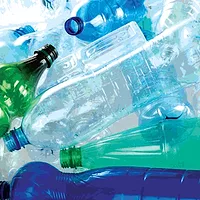Prepare Now for New State Restrictions on Food Packaging Materials
Entities across the entire food and beverage supply chain need to be prepared for compliance with state-specific EPR and stewardship programs as well as recyclability and recycled content requirements for food packaging

Efforts are underway to create a patchwork of new, state-specific extended producer responsibility (EPR) and stewardship programs, recyclability requirements, and minimum post-consumer recycled (PCR) content requirements that apply to packaging materials used for food and beverage products. Entities across the entire food and beverage supply chain may be implicated and need to prepare for compliance.
State EPR and Stewardship Programs for Food Packaging Materials
Over the past few years, several states have implemented programs that will shift responsibility for waste generated by food packaging materials from local governments to food and beverage companies and other entities in the supply chain. By doing so, these programs are generally aimed at reducing the volume of new food packaging material waste and increasing the recyclability of the food packaging material waste that is generated.
Historically, there have been various state-specific EPR and stewardship programs to manage other types of waste, such as electronics, batteries, paints, mattresses, and pharmaceuticals. In July 2021, however, Maine became the first state to adopt a program that covers food packaging materials. Other states followed suit shortly thereafter. Seven states have now enacted legislation that targets food packaging materials: California, Colorado, Maine, Maryland, Minnesota, Oregon, and Washington State. Other states have also taken steps toward implementing EPR and stewardship programs that would encompass food packaging materials, with legislation currently under consideration in several additional states.
Scope of Covered Entities
Importantly, the scope of the coverage of these EPR and stewardship programs varies from state to state:
- Covered products. The products encompassed by the programs vary. While California's EPR program focuses specifically on plastic products, other state programs encompass a wider range of materials (e.g., plastic, paper, glass, and metal). Examples of covered packaging for food and beverage products include plastic bottles, wrappers, and films; paper food cartons and boxes; glass bottles and jars; and aluminum and steel cans. Some state programs also go beyond food packaging to include foodservice ware such as clamshells, plates, cups, and utensils.
- Covered entities. The entities in the food and beverage supply chain responsible for compliance with EPR and stewardship programs vary by state and product type. Some states have chosen to place responsibility for food packaging material waste on manufacturers and distributors of those materials, while other states have chosen to focus on entities further down the supply chain, such as importers, brand owners, licensees, or retailers, including quick-service restaurants. Companies that ship packaged goods into states with EPR or stewardship programs may also be implicated by these requirements.
- Exemptions. There are exemptions (or reduced compliance obligations) in many of the state EPR and stewardship programs that affect covered entities (e.g., based on annual revenue or volume of covered products sold into the state) or covered products (e.g., compostable or biodegradable packaging, packaging for dairy products, and beverage containers covered under the state's bottle deposit law).
Scope of Requirements
The scope of the obligations under EPR and stewardship programs also varies from state to state, including:
- Producer Responsibility Organizations (PROs). Many of the state programs involve covered entities joining and funding a PRO. The PRO is responsible for various tasks related to management of compliance with the state EPR or stewardship program, as well as its funding and implementation. Circular Action Alliance (CAA) is currently the approved PRO in California, Colorado, Maryland, Minnesota, and Oregon. However, some states also have an option for covered entities to independently satisfy the program requirements without joining a PRO.
- Other targets. Some state programs (or companion laws) include other targets, such as requiring the reduction of packaging used, increasing the recyclability of packaging used, or incorporating PCR content into the packaging.
- Reporting obligations. State programs impose reporting obligations on covered entities and PROs. The information required to be reported (and the frequency at which that information must be reported) by covered entities and PROs varies by state. For example, some states require producers to report the amount and types of packaging sold into the state, while PROs may be required to report how much packaging is recycled in the state.
- Payment of fees. States have various structures for determining fees and collection of those fees, although PROs are generally responsible for doing so, with the state setting various guardrails.
- Stakeholder engagement. Some state programs include stakeholder engagement requirements, which may include working with local governments, recyclers, and others in the industry to improve recycling infrastructure and public knowledge about recycling.
- Penalties for noncompliance. The penalties that covered entities could be subject to for noncompliance with applicable requirements also vary based on the state, the frequency of noncompliance, and the requirement with which the entity is noncompliant. These penalties range from financial penalties to being banned from selling products into the state.
Companion State Recyclability and PCR Content Requirements for Food Packaging
Some states with EPR and stewardship programs have also implemented recyclability requirements or minimum PCR content requirements for food packaging materials, which are generally based on material types, either as part of the state's program or separate companion laws. For example, in California, there are various compliance benchmarks with associated deadlines:
- Reduce plastic packaging by 25 percent by 2023
- Use at least 50 percent recycled plastic for plastic beverage containers subject to the California Refund Value by January 1, 2023
- All packaging must be recyclable or compostable by 2032
- 65 percent of all single-use plastic packaging must be recycled by 2032.
New Jersey has PCR content requirements for packaging materials, but does not currently have an EPR or stewardship program, and other states are also considering such laws.
In theory, EPR and stewardship programs and recyclability requirements should work in concert with PCR content requirements. EPR and stewardship programs and recyclability requirements increase the amount of materials in the marketplace that are capable of being recycled and the amount of material that is actually recycled, thereby increasing the amount of recycled content that is available for use.
However, there is now a high demand for recycled content, which is often more expensive than virgin material. This demand is expected to continue to increase as state PCR requirements go into effect. It remains to be seen if state EPR and stewardship programs will be able to successfully close this gap. Companies may continue to face challenges sourcing enough high-quality recycled content to comply with state PCR requirements.
What Food and Beverage Companies Should be Doing
Companies should begin preparing for increased oversight of food packaging at the state level and consider taking the following actions:
- Evaluate the applicability of proposed and enacted EPR and stewardship programs, as well as state recyclability and PCR content requirements, on your company.
- Begin identifying new packaging materials or working with suppliers to reformulate existing food and beverage packaging materials, as necessary, to comply with the existing state requirements. This should include consideration of how new packaging materials or reformulations impact any aesthetic characteristics of your brand.
- If developing a new product, closely consider its packaging materials against the backdrop of proposed and enacted state legislation.
- Continue to stay apprised of developments on EPR and stewardship programs and other packaging material requirements, as the regulatory landscape is evolving.
Samuel Jockel, J.D. is Partner at Alston & Bird and co-leads the food and beverage industry team. He focuses his practice on regulatory, policy, and litigation matters involving industries regulated by FDA, USDA, TTB, FTC, CPSC, and related state regulatory agencies. Sam has also served as a trial attorney in the USDA's Office of the General Counsel and an Oak Ridge Institute for Science and Education Fellow at FDA. While at USDA, Sam received the General Counsel's Award for Excellence.
Ashley Yull, J.D. is a Senior Associate at Alston & Bird who counsels clients in industries regulated by FDA, USDA, TTB, FTC, CPSC, and related state regulatory agencies. Ashley concentrates her practice on helping clients navigate complex compliance and enforcement related issues involving food, beverages, dietary supplements, drugs, medical devices, and cosmetics. Ashley also provides regulatory support in food and beverage litigation. Ashley earned her J.D., cum laude, from the American University Washington College of Law where she was a student attorney in the Glushko-Samuelson Intellectual Property Law Clinic.
Looking for quick answers on food safety topics?
Try Ask FSM, our new smart AI search tool.
Ask FSM →








